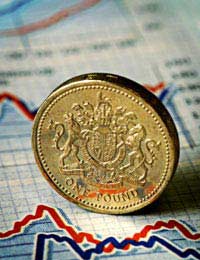All About Investing in Equities

By investing in equities, you give yourself the ability to profit in the success of a wide variety of companies from all sorts of sectors and across every market in the world. So what do you need to know about equities?
Understanding Equities
An equity is the shared ownership of a financial interest in a company. In order to gain equity in a company you need to purchase a share or shares. The more shares you own, the larger your stake will be.When a company first issues shares, they make an Initial Public Offering (IPO). Investors are informed of the nominal value of each share, which is often set at £1.00. The nominal value of a share is not the same as the market value, which is determined by the price investors are willing to pay for the share when traded on the open market.
Companies can issue several classes of share, potentially with different nominal values, and also different voting rights. Ordinary shares give investors the right to vote at company Annual General Meetings (AGMs), as well as the right to receive any dividends that the company chooses to pay to shareholders.
Preference shares do not normally carry the right to vote, but they offer investors the expectation of a fixed rate dividend. In the event of a company going bust, the holders of preference shares would be higher up the queue than ordinary shareholders when it comes to trying to get some of their money back.
The Stock Exchange
Equities are bought and sold on behalf of investors by stockbrokers. Stockbrokers make their transactions through a stock exchange. One of the earliest examples is the London Stock Exchange, which dates back to 1695. Back then, company shares were bits of paper traded in and around two coffee shops in the City of London. Now, transactions are all handled electronically.Stockbrokers can establish the price of a stock through supply and demand. They establish the price at which an investor is willing to buy (the ‘bid’ price), and they match that with a price at which the owner is willing to sell (the ‘offer’ price). If there are more buyers looking to purchase stock than there are sellers willing to trade, then the price of the stock rises. Similarly, if the market is full of sellers wishing to sell, but fewer people willing to buy, then the share price falls.
Investors try to make money by finding out as much information as they can about a company, and either buying or selling shares before the rest of the market can react and do the same.
What Makes Shares Rise or Fall in Value?
There are many factors that can affect the value of a company’s shares. Firstly, the long-term prospects for the company itself. If a company is expected to continue to generate good levels of profit, and also pay out consistent dividends on its shares, then the share price will be on an upward path.Companies are legally required to keep their shareholders regularly updated as to how the company is performing, report on any potential concerns and to also give an assessment on whether the company is going to be able to keep making a profit. Investors usually eagerly anticipate these announcements, and the company’s share price will often rise or fall following an announcement, depending on how the information has been received by the market.
Other factors can also have an impact on a company’s share price, such as national or global economic news, media reports about redundancies or boardroom changes, as well as market rumours or speculation of a business being taken over by a rival company.
When one company wants to take over another, it has to purchase enough stock in that company to ensure that they can acquire control. To do this, they have to purchase the shares of existing shareholders, and so by creating a demand for shares they also increase the price.
How to Buy Shares
If you want to purchase the shares of a company directly, you can do this on the Internet (via a number of share-dealing companies), by post or over the telephone. These ‘execution-only’ or share-dealers will charge you a percentage of your transaction as a fee, so the more you buy the higher the cost.If you sell your shares you will pay stamp duty to the Government – paying 0.5% tax per purchase. You can also invest in shares by opening up a Stocks and Shares Individual Savings Account (ISA).
Over the years there have been lots of studies to determine which investments offer a better average rate of return. Over the long term, despite occasional periods of market falls such as the one recently experienced, equities consistently come out ahead of other investments such as property, bonds or cash.








